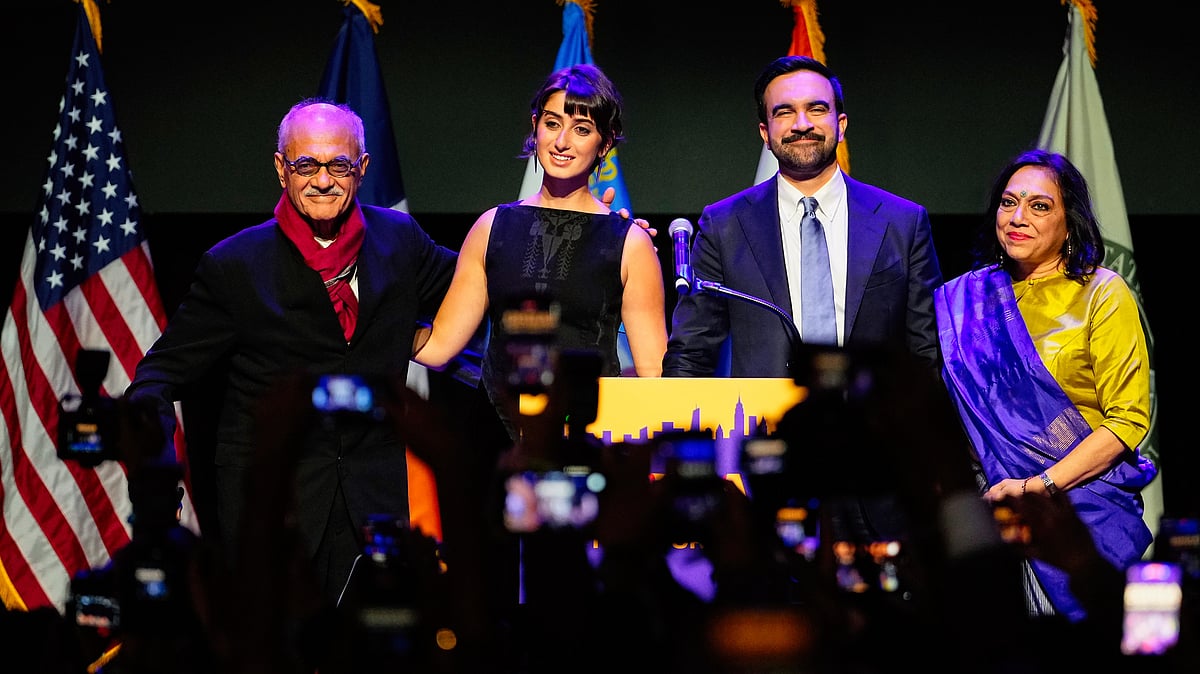Opinion
Why Zohran Mamdani's victory matters beyond the ballot
Mamdani’s victory is a clarion call that progressive vision can prevail against entrenched power and cynical politics

On Tuesday, 4 November, New York City did more than elect a mayor — it made a resounding statement about justice, identity, and moral leadership in an age starved of all three. Zohran Mamdani, a 34-year-old son of immigrants from Uganda and India, emerged as the city’s first South Asian and Shia Muslim mayor, propelled by a coalition that demanded a politics rooted in empathy, equity, and global conscience.
Mamdani’s victory is not just a demographic milestone; it is a clarion call that progressive vision can prevail against entrenched power and cynical politics. His 52.8 per cent majority in a tough three-way race shattered expectations, buoyed by unprecedented turnout among youth, immigrants, and marginalised communities. The message from Queens to the Bronx to Brooklyn was loud and clear: New Yorkers want a city that cares for them, not one that serves billionaires and political elites.
This remarkable political feat is grounded in Mamdani’s own story: born in Kampala to a celebrated academic and filmmaker, shaped by Queens’ working-class struggles, and tempered by firsthand experiences as a housing counsellor. His vision is unapologetically ambitious — a $30 minimum wage by 2030, universal childcare, rent freezes, tuition-free public colleges, fare-free public transit, and robust climate resilience programmes. Not pie-in-the-sky promises, but detailed plans funded by taxing the ultra-rich and corporations at rates familiar to Western Europe.
Mamdani’s challenge to neoliberal orthodoxy is a necessary corrective. New York, a city where one in five children still lives in poverty, cannot be placated with incrementalism. The mayor-elect boldly declares, “I don’t think we should have billionaires,” reminding us that economic inequality is not an inevitability but a political choice.
Published: undefined
But Mamdani’s significance transcends local policy. His victory strikes at the heart of global conflicts and silences. As a fierce advocate for Palestinian rights, a supporter of the Boycott, Divestment, and Sanctions movement, and a legislator who challenged New York charities funding illegal Israeli settlements, Mamdani refuses to separate the local from the global.
His arrest at a Gaza ceasefire rally in 2023 and calls for Israeli Prime Minister Netanyahu’s detention under international law have polarised opinion — but they are acts of moral clarity in a landscape often muddied by fear.
Likewise, his unapologetic condemnation of Indian Prime Minister Narendra Modi as a “war criminal”, drawing lines between Gujarat 2002 and Gaza 2024, shattered diaspora taboos and challenged the complacency of identity politics. Mamdani embodies a politics that refuses to sanitise history for convenience, insisting that truth-telling is foundational to justice.
Critics labelled him radical, and his campaign weathered Islamophobic attacks and accusations of foreign campaign contributions — charges examined and dismissed by authorities. Yet, Mamdani’s refusal to retreat underscores the resilience necessary for transformative politics today.
His coalition’s strength lies in its intersectionality: young voters, immigrant communities, labour unions, environmentalists, and progressives united around a vision that links housing, healthcare, climate, and human rights. Endorsements from Alexandria Ocasio-Cortez and Bernie Sanders are not mere accolades but signals of a movement gaining ground.
Published: undefined
Mamdani provides a blueprint for how cities can lead in an era fraught with inequality, authoritarianism, and social fracture. By redefining public safety to encompass mental health and affordable housing, promoting gender-affirming care, and committing to immigrant sanctuary policies, he frames governance as a moral project.
As New York prepares for the challenges ahead — from rising rents to climate crises — the mayor-elect’s call for “a city for all, not the few” is both a promise and a dare. New Yorkers and global observers alike should heed this moment: that courage, conviction, and uncompromising justice can still redirect the arc of politics.
Zohran Mamdani’s ascent is an inspiration for marginalised communities worldwide. It is proof that barrier-breaking representation need not dilute principle; rather, it can amplify it. For anyone disillusioned by political cynicism, his victory is a beacon — reminding us all that democracy’s promise lies in its ability to reflect the diverse and complex humanity of its people.
To future leaders and voters alike, Mamdani’s triumph offers an unambiguous lesson: progress is not a spectator sport. It demands engagement, resilience, and a refusal to settle for less than justice.
If New York can elect Zohran Mamdani, it can lead the way for cities everywhere to reclaim their power to govern with conscience and courage.
Hasnain Naqvi is a former member of the history faculty at St Xavier’s College, Mumbai. You will find more of his writing here
Published: undefined
Follow us on: Facebook, Twitter, Google News, Instagram
Join our official telegram channel (@nationalherald) and stay updated with the latest headlines
Published: undefined